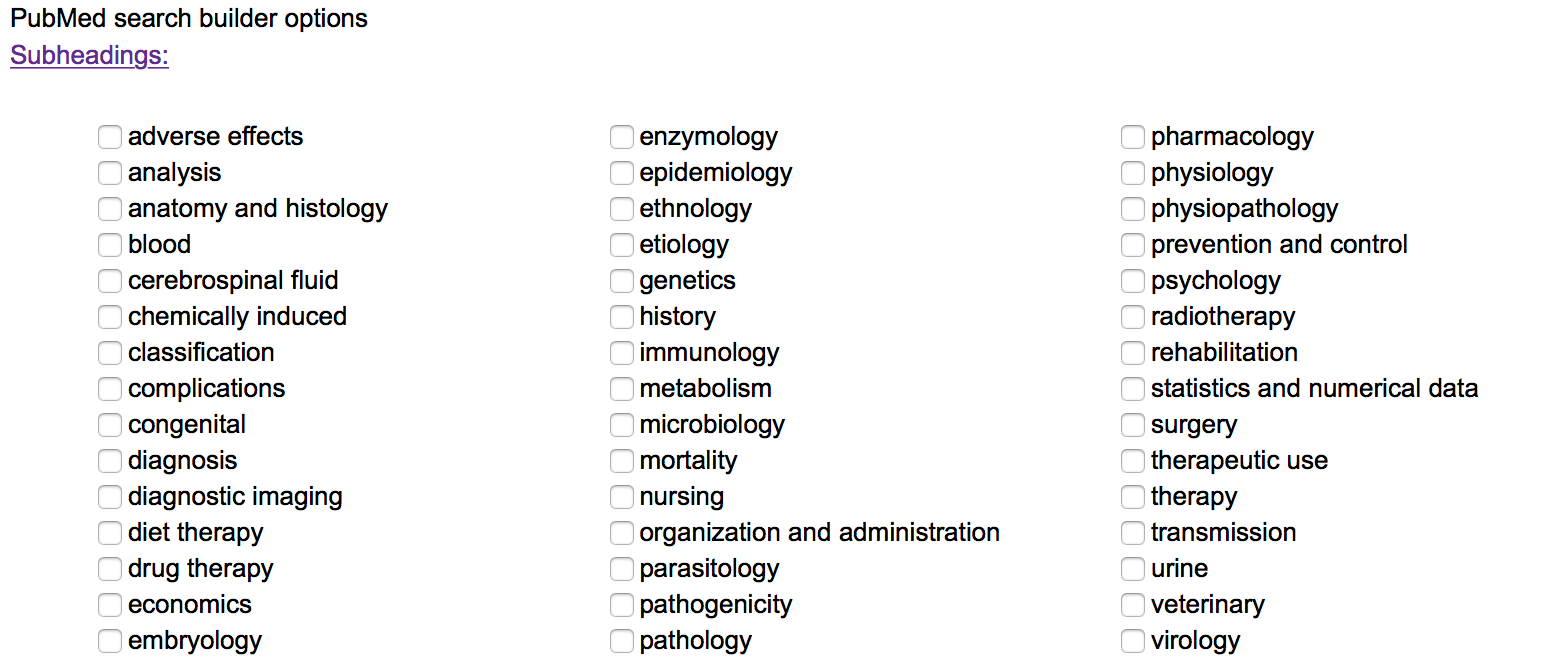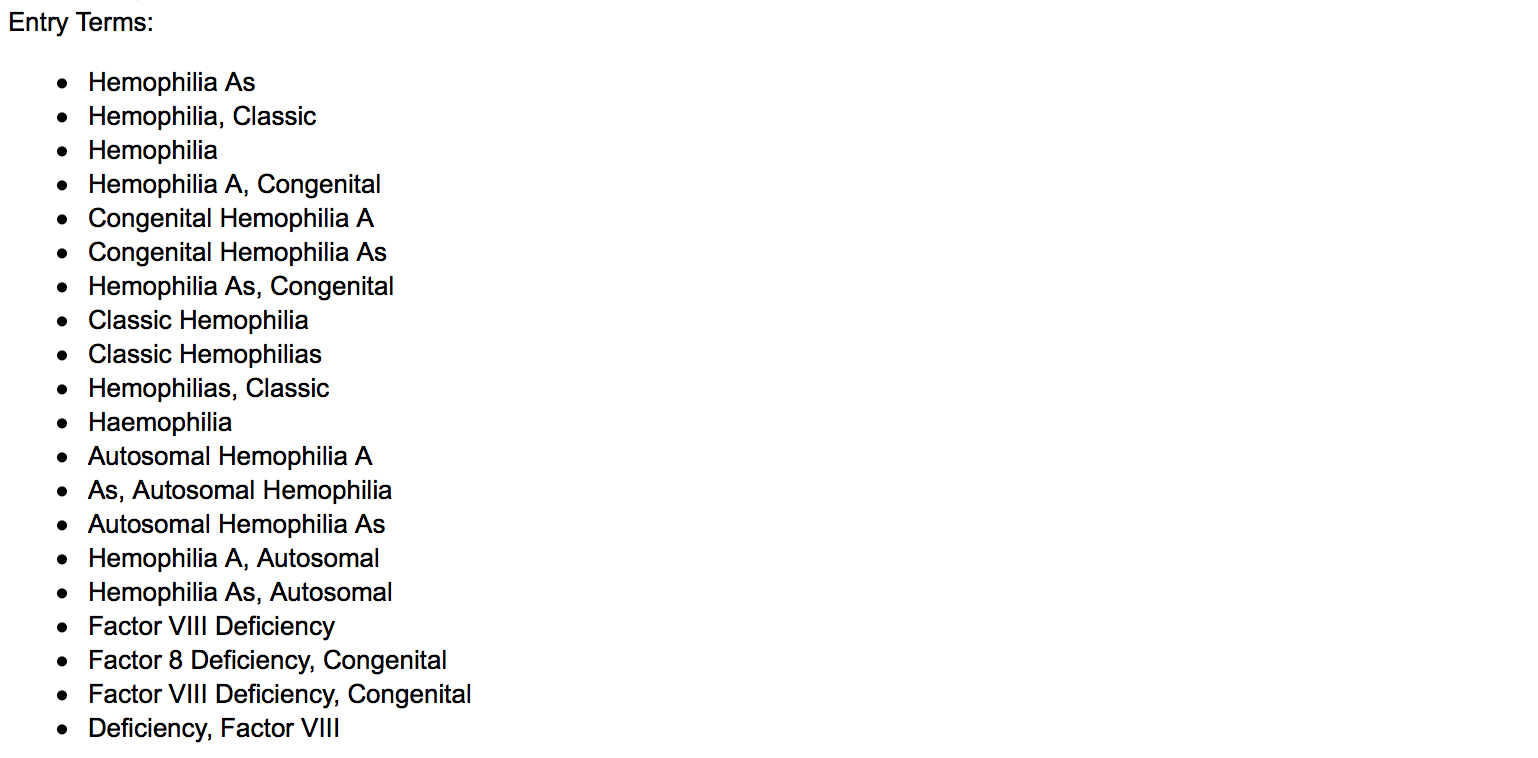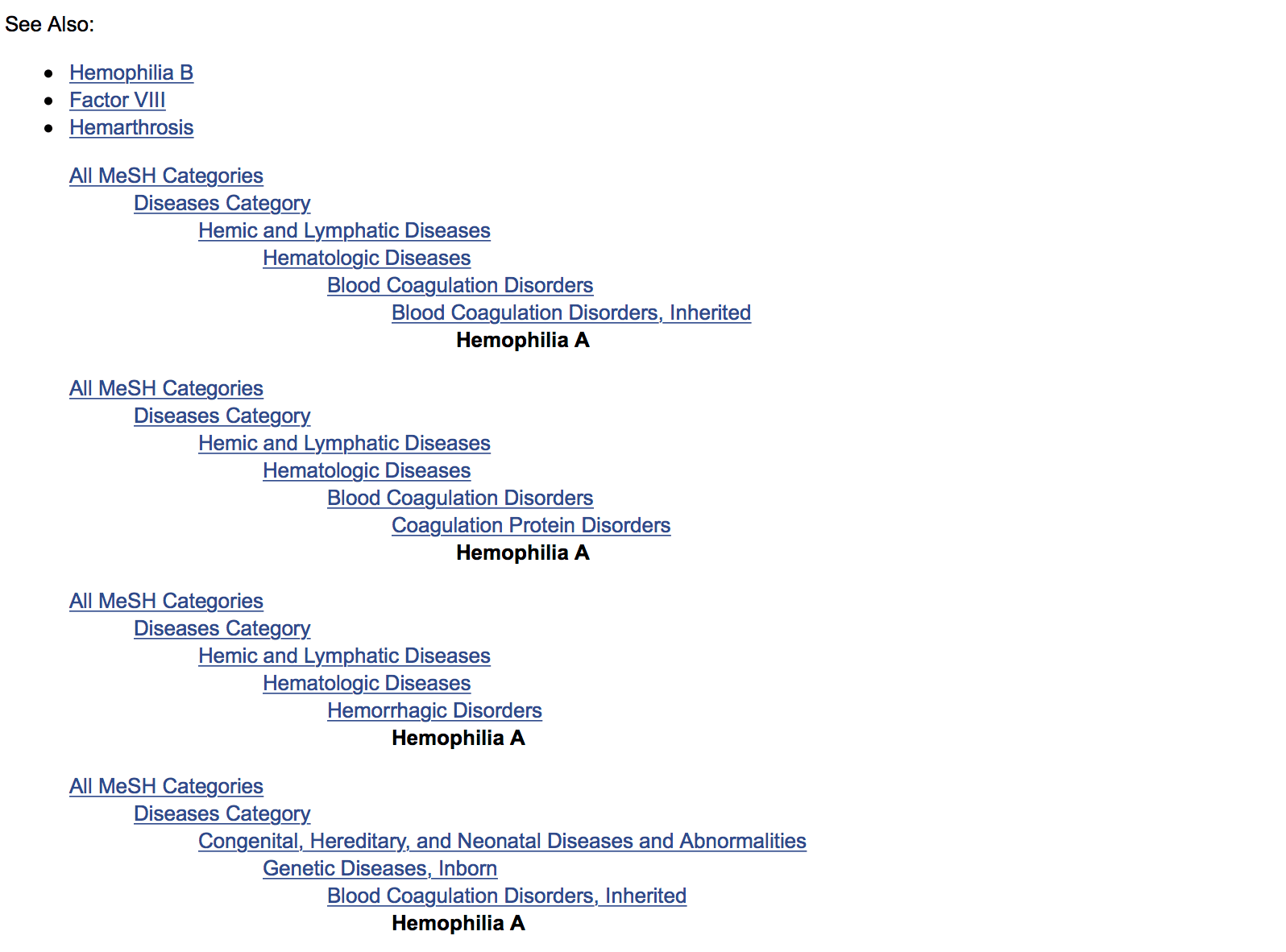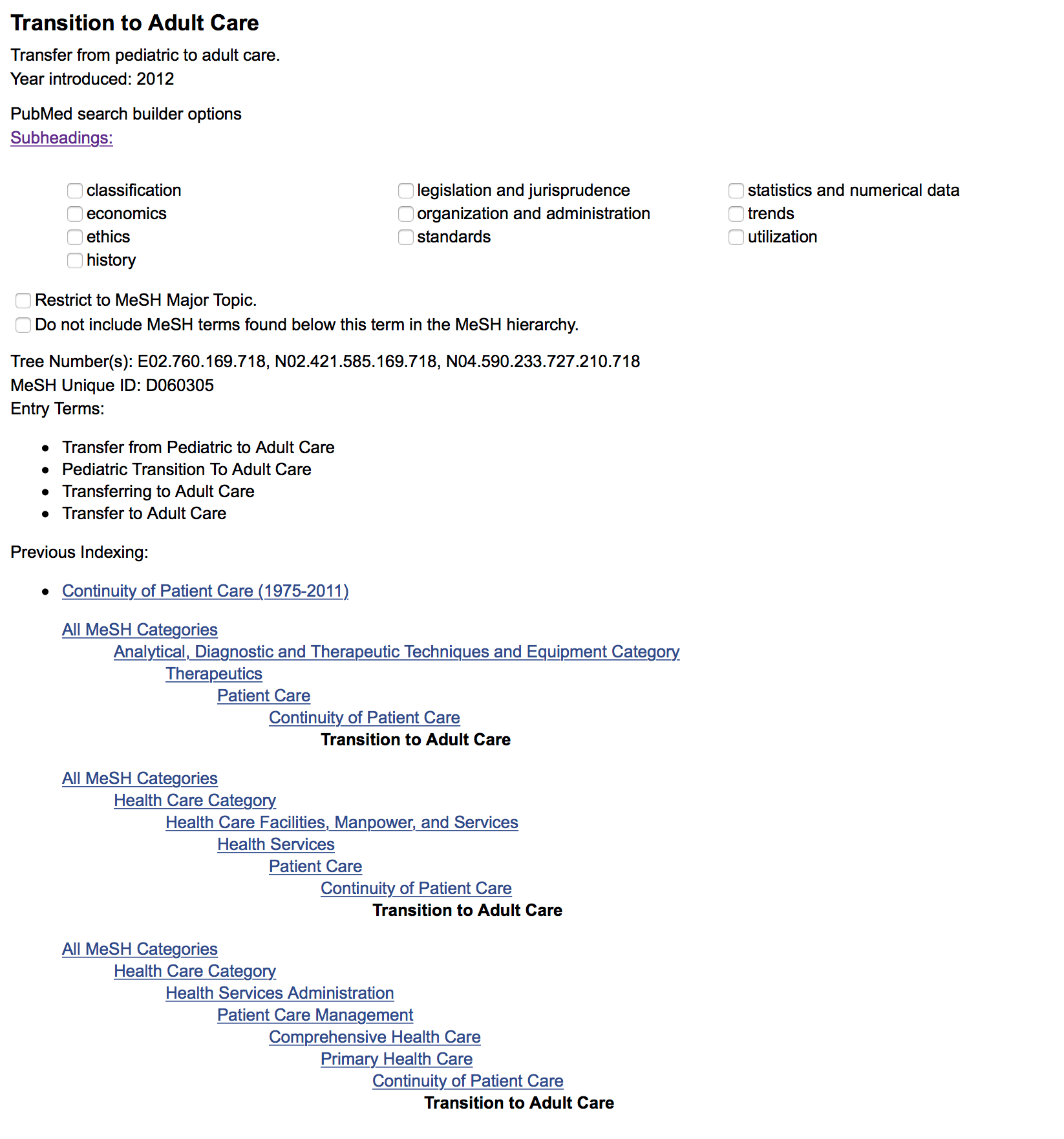A Guide to Using MeSH Headings
What makes Medline such a valuable tool is that articles are indexed using defined terms known as Medical Subject Headings (MeSH). They are revised annually and searchable online through PubMed. You therefore don’t need to think of synonyms to carry out a comprehensive search – the database does all that for you provided you enter the correct MeSH heading. Spellings are American but UK English is automatically mapped onto the US alternatives.
If you go to the MeSH section of PubMed, this is what you see for haemophilia:
A definition of the MeSH term:
Hemophilia A
The classic hemophilia resulting from a deficiency of factor VIII. It is an inherited disorder of blood coagulation characterized by a permanent tendency to hemorrhage.
Year introduced: 1999(1966)
Next is a list of subheadings you can use to limit the scope of your search – e.g. focusing on the diagnosis or complications of haemophilia. The number available differs for each MeSH heading:

There are other criteria you can use to narrow your search to articles that focus on haemophilia (a ‘major topic’) or keep your search general rather than specific:

Next is a list of numbers that denote the different categories that haemophilia falls under (‘trees’); these are usually of little interest to researchers. Also, every MeSH heading has a unique number – again, not of much direct interest to us:

There is a list of synonyms (‘entry terms’) that will be interpreted as ‘haemophilia’ by the database search engine:

This is followed by a list of related MeSH headings, and finally by a list of the category trees which include haemophilia.Every MeSH heading has a place in one or more hierarchical trees of related concepts – haemophilia A, for example, is classed as an inherited blood coagulation disorder, a coagulation protein disorder, a hemorrhagic disorder and an inborn genetic disease. Searching for any of those headings will therefore retrieve information about haemophilia and other terms in the same tree.

Key to searching PubMed efficiently is selecting the MeSH headings that most accurately describe the topic you’re interested in (with the proviso that flexibility is needed when selecting them – see the worked example of a PubMed search [LINK]). It is possible to use free text: PubMed will automatically map your words onto its own headings but there is a small risk you’ll miss something. For this reason, systematic reviews often combine index terms and free text for double security.
If, for example, we’re interested in transition arrangements for people with haemophilia, which headings do we need? We’ve seen that ‘hemophilia’ is one (and we could differentiate between A and B if necessary). Transition is less clear-cut – the MeSH headings index has 129 entries that include the word ‘transition’. A quick glance down the list reveals one that is exactly what we mean:

Note that this MeSH heading was introduced in 2012 so it won’t be useful before that dateas a MeSH heading– which is to say, subheadings won’t work and it won’t occur in any of the tree categories. A free text search will be necessary to find articles published on transition to adult care before 2012.
There is also a similar MeSH heading ‘Transitional Care’, which is ‘health care provided during a transition to a different mode of care’ – a case of knowing what you’re looking for.